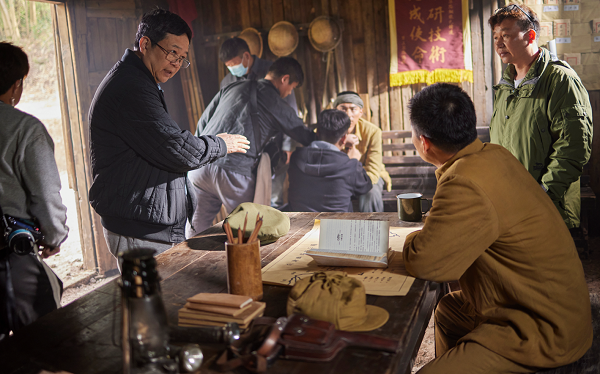

In July 1952, the Chengdu-Chongqing railway commenced operations, marking a milestone as the first railroad completed since the founding of New China. Over 30,000 People's Liberation Army military personnel and 100,000 workers contributed to its construction, finishing the 505-kilometer railway within two years.
This remarkable achievement, considered a "miracle" given the challenging conditions in the country at that time, has been chronicled in the TV series Yi Lu Xiang Qian (Keep Going Forward), a 30-episode show broadcast on multiple channels and online platforms, including CCTV-8 and iQiyi, between Feb 28 and March 9.
Li Xiaojun, the deputy head of the Sichuan province's government publicity department, said that the TV series has realistically and faithfully portrayed history, evoking patriotic emotions and national pride among modern audiences, during a recent seminar held in Beijing.
Jiang Xuedong, the head of the government's publicity department of Neijiang in Sichuan, where the drama was filmed, said that the local government provided significant assistance, including offering over 100 archival documents, facilitating interviews with six individuals involved in or witnessing the 1950s railroad construction, and assisting in selecting more than 20 shooting locations.

Director Xi Xin recalled their initial uncertainty about crafting a narrative centered on the railroad due to their limited understanding of the subject. However, his visit to Neijiang, home to the country's sole memorial hall and monument honoring railway laborers, profoundly affected him, inspiring him to delve into a tapestry of touching stories about those who labored to construct the railroad.
"During that time, China's economy was quite poor," said the director, noting that investigations revealed the Chinese government provided 100 million kilograms of rice as a substitute for the laborers' salaries.
The locals in Sichuan province were notably supportive of the project, with some villagers even donating their stockpiled wood, originally intended for coffins or house construction, to be used in making railway sleepers, according to Xi during the seminar.